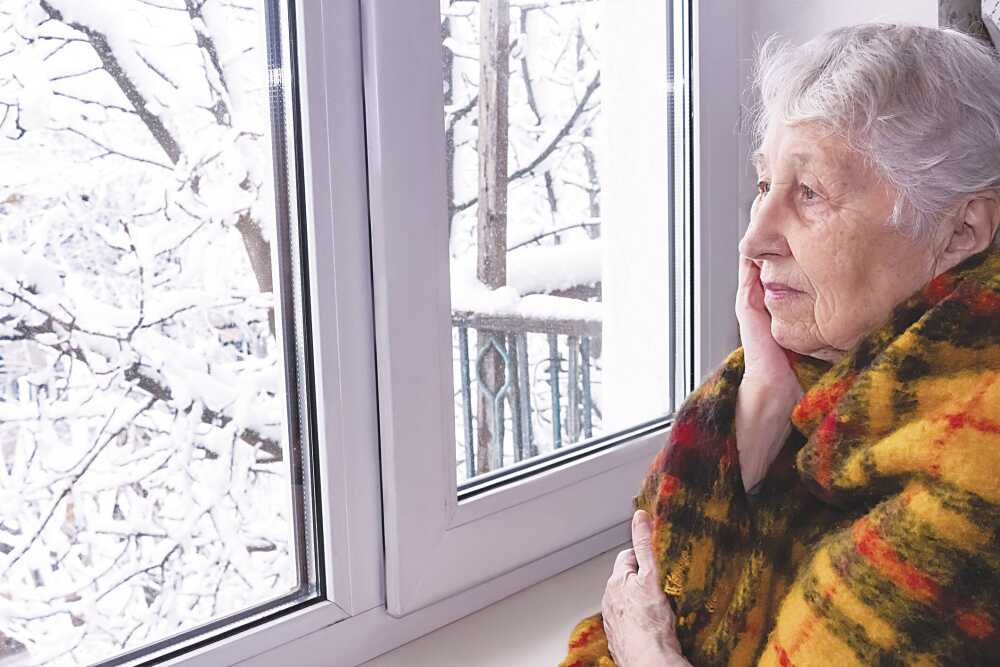Wednesday, January 27, 2021 ~ Updated 5:17 PM
The pandemic is stressful. We all have anxiety about COVID in one way or another and it can be overwhelming for both adults and children.
"Coping in healthy ways is important and can even make us stronger," said David Dahlbeck, PhD, HSP, psychologist and behavioral health provider at Ferguson Medical Group, a Saint Francis Medical Partner.
He added, "In addition, it's important to be aware that children and adults react differently to stress."
Below, we have assembled Dahlbeck's lists of what to look for in children and adults.
Signs of stress in your child
For infants, toddlers and young children:
* Backward progress in skills and developmental milestones
* Fussiness and irritability
* Difficulty falling asleep
* Separation anxiety
* Increase in tantrums
* Bed-wetting
For older children and adolescents:
* Changes in mood
* Loss of interest in activities previously enjoyed
* Problems with concentration
* Lack of interest in schoolwork and poor academic performance.
* Thoughts of suicide
* Changes in appearance
What to do:
* Check in with your child often -- watch and listen for signs they may be struggling.
* Keep those lines of communication open. Constantly check in with your child.
* Don't forget that your pediatrician and mental health providers are here to help.
"Those are the red flags, so if you start seeing those things, don't be afraid to talk to your child about it," said Dahlbeck. "If you are having troubles doing that and still feel like it's an issue, go to your pediatrician and have a conversation with them."
For Adults, Signs to look for
Recognizing the signs and symptoms of anxiety and depression is harder than before. For example, historically, isolating has been a common symptom of depression. However, in COVID times, we are instructed to quarantine and isolate. Dahlbeck adds to consider, "Is the isolation because of quarantining? Is your family member/friend just doing what they're supposed to? Or, is it because they're a little bit more stressed, anxious and depressed?"
Dahlbeck says to watch for certain behavioral changes.
Common things to look for:
* Changes in sleeping or eating patterns
* Difficulty concentrating
* Worsening of chronic health problems
* Changes in appetite, energy and activity levels
* Physical reactions, such as headaches, body pains, stomach problems and skin rashes
* Worsening of mental health conditions
* Increased use of tobacco, and/or alcohol and other substances
* Increased anxiety, depression and/or suicidal thoughts
How to stay mentally fit during these trying times:
* Take care of your body-- the four key elements are: eight hours of sleep, eat healthy meals, participate in some sort of activity or exercise and drink plenty of water
* Make time to do something you enjoy, and relax a bit.
* Connect with others. Research shows quarantine and isolation increase the odds of negative outcomes.
* Connect with your community or faith-based organizations.
* Stay informed, but avoid too much exposure to news. Too much media can undermine mental health and social media escalates anxiety more than traditional media.
* Take breaks from watching, reading, or listening to news stories.
* Research tells us that managing stress ASAP can prevent long-term troubles.
Dahlbeck encourages a different way of thinking about utilizing mental health services. "If you asked a trapeze artist before a performance, 'Hey before you start, how many safety nets would you like to have? The answer would probably be something along the lines of, 'I'll take as many as you got!' because if you fall, you want to be sure something catches you. Do you want to rely on just one net?"
Staying mentally healthy is utilizing all the nets we possibly can. And we actually have more of these than we realize: going to the gym, talking to a friend, going to your doctor, church, talking to your pastor or therapist -- these are all our safety nets. So when we feel like we are "falling" or having a bad day, we can find comfort in the knowledge that we have all these safety nets to catch us and that we won't fall all the way to the bottom.Resources
* Suicide Hotline: 1 (800) 273-TALK (8255)
* Saint Francis Healthcare System Behavioral Health: (573) 481-1367































